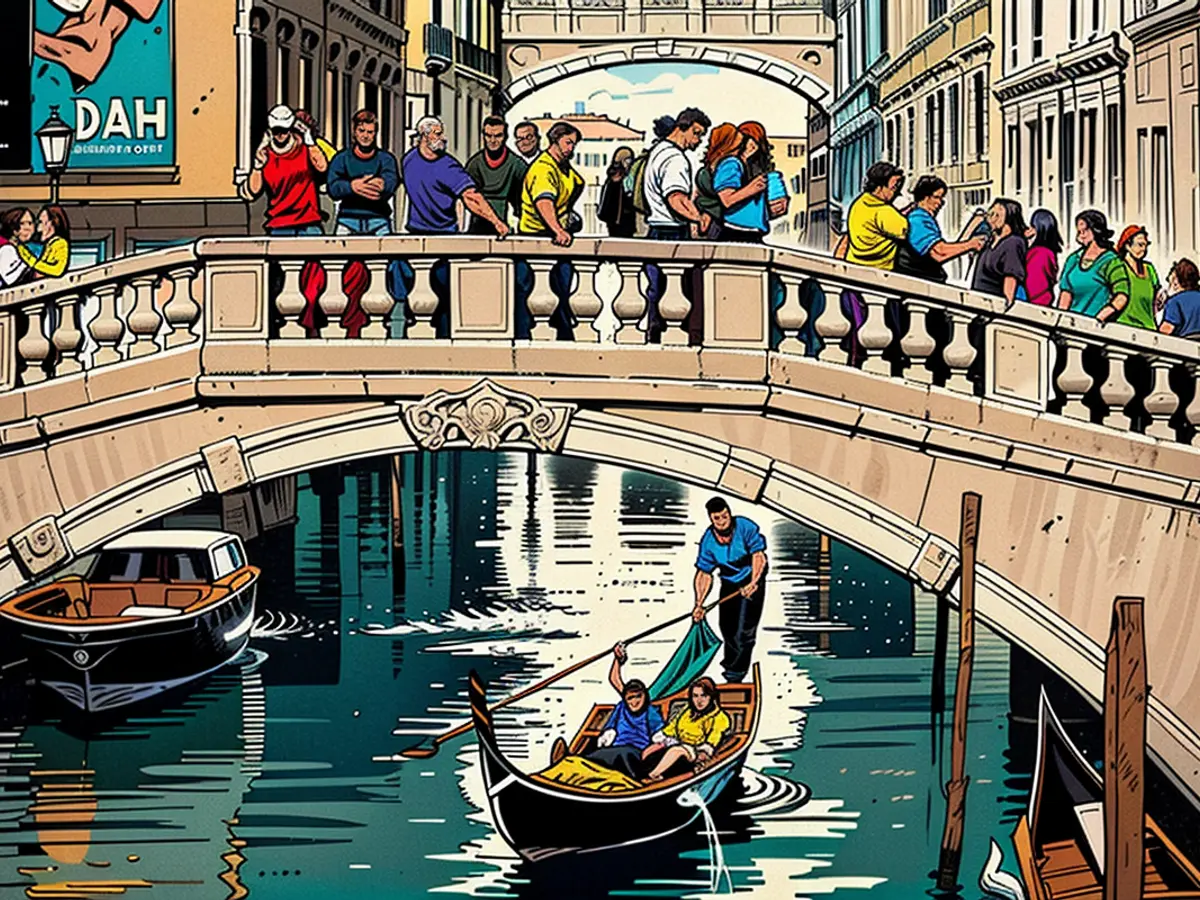vacation - Caution with greasy spots: What annoys Italians most about tourists
A few auto hours drive and one is right in the midst of the sweet life under the sun. Germans love Italy as much as any other country. For decades, Italy has been a longing and refuge. The Italian economy benefits from the German fondness for pizza, pasta, and Aperol. In return, the Italians put up with some bad behavior from tourists – albeit reluctantly. Which behaviors from travelers particularly annoy Italians, according to recent representative survey results, were revealed.
Last summer, a particularly clever tourist caused a worldwide sensation. The British man had carved the name of his girlfriend into the walls of the Colosseum and then claimed he didn't know how old the monument was. This isn't an isolated incident. In their vacation, many seem to leave their good manners at home. They damage landmarks, throw their trash carelessly into the prairie, and make joyful selfies at memorial sites. Locals are infuriated by this disrespectful handling of the historical heritage of the country. More than two-thirds of the survey respondents stated that they find this behavior from tourists most annoying.
Italians hate disrespectful behavior towards their cuisine
It is well known that the country on the Mediterranean is extremely proud of its cuisine, which is among the best in the world. And, of course, the local cuisine is also a major attraction for tourists. The problem: Tourists eat Italian dishes eagerly for their lives but disregard the corresponding rules and manners. This upsets many Italians.
Almost every fifth local is annoyed when tourists cut their spaghetti with a knife or eat pizza with a fork and knife. In Naples, the birthplace of pizza, it is still eaten with the hand. Even worse, according to the survey, is when travelers order foreign dishes in restaurants. If Schnitzel and fries are ordered in a pizzeria, many gastronomes take it personally. A full 19% of the survey respondents found this "totally inappropriate," as the Italian cuisine offers a wide variety.
Tourists often don't even master the basics of Italian etiquette
The situation is similar when it comes to the coffee specialties of Italy. Although it is common practice in Germany and other countries to consume Cappuccino and Co after the midday meal, this is still a taboo in many regions of Italy. Cappuccino, as well as other milk-based coffee specialties, are considered typical breakfast beverages. Every Italian surveyed finds it annoying when tourists disregard this unwritten rule and order something other than a caffè, i.e., an espresso, after 12 pm.
Italy lives off tourism, with 79 million people visiting the country in 2023. Visitors come from all over the world, with Germans making up the largest group. Many tourists, however, do not even bother to learn the most rudimentary vocabulary in the local language but assume that the person on the other side understands their own language. Twelve percent of the surveyed Italians even find it annoying to be addressed in a foreign language. However, five percent are annoyed that tourists do not even master basic courtesy phrases such as Ciao! (Hello or Goodbye), Grazie! (Thank you), and Scusi! (Excuse me).
The survey was conducted by an independent market research institute on behalf of the language learning portal Preply. A total of 1,003 men and women aged 16 and above with residence in Italy were surveyed. The survey was carried out between 5th and 9th April.
Tourists visiting Beautiful Italy often overlook the importance of respecting local customs, such as eating Italian dishes with the proper utensils and ordering Italian cuisine in Italian restaurants. This lack of etiquette can lead to frustration among Italians, who take pride in their cuisine and see it as a major attraction for tourists.
Furthermore, many tourists fail to learn even the basic vocabulary in Italian or use basic courtesy phrases, which can also cause annoyance for locals who value respect and politeness in interactions with visitors. This highlights the importance of cultural sensitivity and understanding when traveling to other countries, especially ones that rely heavily on tourism like Italy.
Read also:
- Fear of escalation in the Middle East: US Secretary of State Blinken travels to the region again
- Government circles: US Secretary of State Blinken to travel to Middle East again
- Bridging days 2024: How you can double your vacation this year
- Germany has wanderlust: how tour operators and airlines are looking ahead to the next travel year








